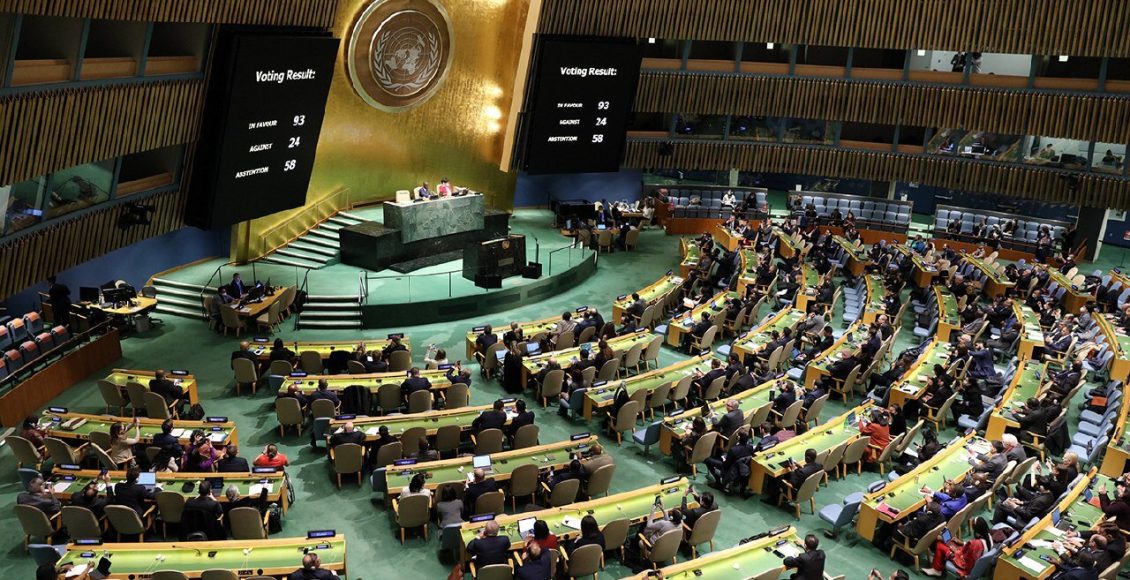Iran is at war. Not a war sought or desired, but an imposed one—marked by a continuous escalation of tensions that Israel has been fueling for years through attacks on its nuclear, military, and civilian infrastructure.
These aggressions, far from aiming for dialogue or diplomatic resolution, reveal an explicit intent to weaken Iran’s strategic capabilities through operations that not only jeopardize regional stability but also violate fundamental principles of international law.
The Israeli attack and the violation of international law
The recent Israeli strikes against Iranian nuclear facilities, such as those in Natanz and Fordow, cannot be dismissed as isolated incidents or legitimate acts of self-defense. According to experts and international bodies, they constitute a clear breach of Article 2(4) of the United Nations Charter, which prohibits the use or threat of force against the territorial integrity and sovereignty of any member state.
These nuclear sites have been under the strict supervision of the International Atomic Energy Agency (IAEA) and are part of a declared peaceful program since 2003, acknowledged even by independent reports. The attacks also violate Article 12 of the IAEA Statute, which expressly forbids hostile actions against nuclear installations under international safeguards. The risks posed are not only political but also environmental and humanitarian in an already fragile region. The IAEA itself has warned of the possibility of a radioactive disaster in the event of significant damage—an eventuality apparently disregarded by the aggressor.
Furthermore, Iran’s sovereignty was further compromised by violations of its airspace, as well as those of neighboring countries such as Iraq and Syria, adding another layer of illegality and regional destabilization.
Iran’s response: Legitimate defense under international law
From the perspective of international law, Iran’s reaction to these attacks is not only understandable but fully legitimate. Article 51 of the UN Charter enshrines the inherent right of states to self-defense against armed attacks. This right is particularly vital when the Security Council, tasked with maintaining international peace and security, is paralyzed by political vetoes, as is often the case.
Iran’s response—which included launching ballistic missiles against Israeli military and strategic targets such as the naval base and main oil refinery in Haifa—is seen within this legitimate right to self-defense. Verified footage circulated by international media despite Israeli censorship demonstrates the significant damage caused by these defensive actions, intended to send a clear message that aggression will not go unanswered.
Western hypocrisy and the double standard of international law
This conflict demands moving beyond the simplistic narrative that predominates much of Western media, where Israel is portrayed as a victim exercising legitimate defense, while Iran is depicted as an unjustified aggressor. This narrative distorts reality and conceals an uncomfortable legal truth: the selective and double application of international law aligned with geopolitical interests.
Israel, which is not a party to the Rome Statute governing the International Criminal Court, has carried out actions that could be classified as international crimes, including attacks endangering civilian populations and violating the sovereignty of other states. Yet it enjoys unwavering political support from the United States and other Western allies, which hinders effective enforcement of international law and accountability.
This double standard undermines the very legitimacy of the international legal system and fuels mistrust and resentment in regions where law is perceived as a tool serving dominant powers. Conversely, Iran’s defense is backed by clear and universally recognized international norms—conveniently ignored in dominant political discourse.
This conflict once again exposes how international law is instrumentalized to legitimize Western hegemony and justify selective interventions while minimizing or silencing violations by their allies. This is the critique advanced by Professor Costas Douzinas, who denounces the global legal system as a means to uphold Western political and military dominance.
The Security Council deadlock and the right to Self-Defense
The UN Security Council, responsible for maintaining international peace and security, has demonstrated its inability to act effectively against these aggressions due to vetoes and political blockades. This reality legitimizes Iran’s right to exercise self-defense under Article 51 of the UN Charter, which recognizes states’ prerogative to take military measures to protect their existence from unprovoked attacks, especially when diplomatic and multilateral channels are stalled by geopolitical interests.
The current escalation did not arise in a vacuum. It is the product of years of tensions, sanctions, and unilateral hostilities that have made Iran a constant target of military and political pressure. Israel, backed by Washington, has maintained ongoing plans to dismantle Iran’s nuclear and military capabilities, representing an existential threat to Tehran.
The cold war between the two countries has escalated into an open conflict with regional and international consequences that could further destabilize the Middle East.
A Conflict rooted in geopolitics and economic interests
This conflict must be analyzed through a critical lens that recognizes the imperialist and neocolonial dynamics underlying the region. The United States and its allies use international law as a tool to legitimize their strategic and economic interests while criminalizing states that resist this hegemony.
The war against Iran is, essentially, a struggle for geopolitical and energy control, where international law is manipulated to justify selective aggressions and devastating economic sanctions.
From the standpoint of international law, Iran’s response to Israeli attacks is fully justified as a legitimate exercise of the right to self-defense against unprovoked aggressions that violate sovereignty and the fundamental principles of the UN Charter and international nuclear treaties.
The Security Council’s inability to act in the face of these violations exacerbates the international crisis and highlights the urgent need to reform a multilateral system that is powerless before the hegemony of certain states. Recognizing and respecting Iran’s right to self-defense is not only a legal issue but an indispensable step to prevent an imposed war from becoming a larger catastrophe.
By Xavier Villar (Tehran Times)

